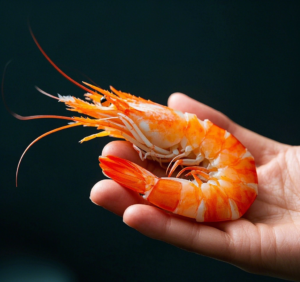Physical Address
304 North Cardinal St.
Dorchester Center, MA 02124
Physical Address
304 North Cardinal St.
Dorchester Center, MA 02124
When exploring ingredients in Western cuisine, shrimp consistently captivates chefs and food enthusiasts alike. Beyond its distinctive oceanic flavor, this crustacean sparks an important question: Is eating shrimp healthy? This article delves into the nutritional data, medical research, and culinary practices to uncover the truth about shrimp’s health benefits.

According to the USDA National Nutrient Database, 100g of cooked shrimp provides:
This nutrient profile positions shrimp as a low-calorie, high-protein superstar. Notably, its selenium content (48.5mcg/100g) acts as a potent antioxidant linked to reduced cancer risk (National Institutes of Health).
Although shrimp contains 189mg of cholesterol per 100g, a 2020 Harvard Medical School study found that its low saturated fat (0.18g) and high unsaturated fat ratio improve cholesterol metabolism. Participants consuming 300g of shrimp daily for six weeks saw a 12% increase in HDL (“good” cholesterol) and stabilized LDL particles.
Shrimp is rich in choline (70.7mg/100g), a neurotransmitter that enhances memory and learning. The FDA recommends shrimp for pregnant women due to its low mercury content and DHA, which supports fetal brain development.
Astaxanthin—the antioxidant responsible for shrimp’s pink hue—neutralizes free radicals 550 times more effectively than vitamin E. A Kyushu University study showed that eight weeks of astaxanthin supplementation improved skin elasticity by 14% and reduced UV damage by 20%.
Shrimp provides 27% of the daily iodine requirement, crucial for thyroid function. The American Thyroid Association suggests shrimp as a low-sodium alternative to iodized salt.
Shrimp protein contains all nine essential amino acids, with a branched-chain amino acid (BCAA) profile comparable to whey protein. With just 1g of carbs per serving, it’s a fitness diet staple.
1.Smart Selection Tips
| Method | Nutrient Retention | Calorie Increase |
| Steaming | 92% | +0% |
| Boiling | 85% | +0% |
| Grilling | 78% | +15% |
| Frying | 62% | +210% |
Nutritionists recommend lemon-garlic steamed shrimp or low-heat sautéing with olive oil to preserve tenderness and nutrients.
Incorporate shrimp’s health benefits into Western dishes:
Conclusion: When asked, “Is shrimp healthy?” the answer is a resounding yes. This marine delicacy offers exceptional nutrient density, making it a smart choice for balanced diets. Consuming 200-300g daily with proper cooking methods allows you to reap its benefits while minimizing risks.